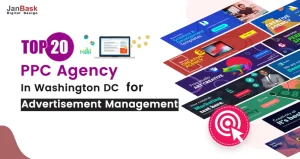
The term "growth marketing" may seem redundant to many business owners and marketers.
Marketing is what you do to grow your business, so wouldn't you term all marketing as growth marketing?
Starting and growing a business is challenging. You need to start by having a viable concept. The next step is to identify a profitable niche.
Of course, you need to identify your target market and have a product that is valuable to sell. Although you are spreading the word about your goods or services, it is impossible to run a profitable business and stay afloat without the right marketing strategies to support your growth.
A marketing strategy plan is essential to effectively nurture your clients, boost your company's bottom line, and maximize the return on your marketing expenses.
If you want to leverage the trends with the highest ROI, a marketing strategy plan is extremely important. This approach could be anything ranging from short videos, influencer marketing, branded social media, running ads, etc. depending upon your business niche. You must carefully incorporate both new trends and proven strategies into your marketing plan to achieve significant results.

Looking for Best Marketing Services?
Sometimes eCommerce owners and marketers get bogged down in the minutiae of bits and bytes. They lose sight of the organization's goals and objectives. They lose sight of the target market and the primary problems that their solution addresses for the consumer. When that occurs, the precise strategies used by the company may no longer be effective.
The bottom line is that a marketing strategy is not some stale old document you place on the top shelf and then completely ignore. Finding your company's key goals and objectives, as well as strategies for achieving them, is a crucial task. That serves as a guide for everything you do to sell your goods or services more effectively.
It is crucial to have an impressive marketing strategy for your company since it enables marketers to:

Spotify is one of the best global corporations in the world. We've all heard of Spotify, but how did it start in Sweden and spread so swiftly to other nations?
The core of Spotify's business strategy is assisting you in discovering new content.
Selecting a musical genre is one thing; choosing a musical "mood" is quite another. On Spotify's "Browse" page, you may listen to music that suits your "workout" or "sleep" interests in addition to "country" and "hip-hop."
Spotify gets consumers to listen to music that goes beyond their favorite genres and instead satisfies habits and lifestyles that people share all across the world by changing how they describe their content. This way their product is classified in a different way which enables international artists to reach a global audience as well.
Today, Spotify has offices spread across more than fifteen different nations.
Imitating Spotify's strategy
Spotify's model is a success because of its product-based global marketing strategy. It provides music, podcasts, and other material in so many languages that the audience couldn't help but to download the app and listen to their desired music. Featuring items or product sections appeal to consumers globally and surely your brand will be a success owing to Spotify's great marketing effort and research.
In 2016, Spotify started this campaign to give consumers more context and information about the lyrics of their favorite songs. The 'Behind the Lyrics' section of the app was well-liked and was considered a popular addition to the app. Through this advertising campaign, Spotify was promoted as a destination for music lovers and fans in discovering the meanings of their favorite songs.

McDonald's is a well-known successful global brand. McDonald's uses "local" marketing strategies while maintaining its overall branding coherence. McDonald's offers regionally customized menu items in different nations to give them a local feel and taste. For instance, McDonald's serves a flatbread sandwich called the Marabi in its establishments across the Middle East.
McDonald's macaroons added to its French menu:

And added Spaghetti to its menu in the Philippines:
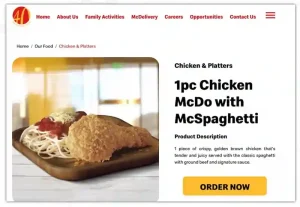
Imitating McDonald’s Strategy
The first and most obvious response might be to open restaurants in other areas, similar to the other big giants that have done earlier. The idea here would be to replicate their strategy. However, it's easier said than done, especially if you manage a local company.
Celebrate the flavors of the world by organizing an "International Day" and posting about it on social media and other platforms. This will put you on people's radars who regularly enjoy these regular cuisines and help you spread the word in other marketplaces.

Nike with its dominant reach and global presence has been able to create a longstanding relationship with Manchester United. This has been possible with its careful selection of international sponsorships.
These relationships have undoubtedly assisted the business in capturing the attention of a worldwide audience, despite the fact that sponsorship spending are at times fairly unpredictable – demand costs tend to increase owing to triggers like championships and tournaments.
Nike's "Nike by You" co-creation platform is another marketing strategy employed by Nike to appeal to global audiences. Nike is able to deliver customized goods that complement various cultural preferences and fashions by giving the power of design into the hands of the consumer.
Imitating Nike’s Strategy
Partner with other brands, celebrities, influencers and ambassadors in your global target markets. Selecting them wisely. For instance, Manchester United is a significant cultural force in the UK, which undoubtedly contributed to Nike's expansion there.
Why not provide your audience the chance to personalize and resell the products if you sell consumer goods? You'll end up reaching a far bigger audience, and customers from various locations will much more accurately represent the preferences and likes of their region.
The goals of marketing are to increase brand recognition and create a pipeline of qualified leads that convert to sales. Getting the word out might be difficult for small businesses because of reduced visibility and a lack of resources (like budget or time).
However, there are important key strategies that can assist you in scaling your marketing efforts.
Whether you’re struggling with a constraint of budget, the time restraints caused by the small size of the team, or at times the lack of direction, a marketing plan appropriate for your business can guide you towards growth.
Let's examine the essential strategies of a thorough marketing plan for 2023.
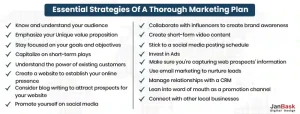
Understanding that "anyone" is your customer is a key error to start with. Larger businesses may be able to reach a broad audience, but "the riches are in the niches" is a cliche for a reason.
As a small business in a niche, you have the most leverage. Additionally, you need to comprehend your target market's challenges, triggering events, and priorities to carve out a niche and attract customers.
What is it that drives people to buy a product? How does it look like to succeed? Understanding these factors will enable you to craft your communications that connect with audiences and persuasively support your solution.
Start by understanding who your target audience is and what are their aspirations, motivations etc. Then create a buyer persona to get into your audience's mind.
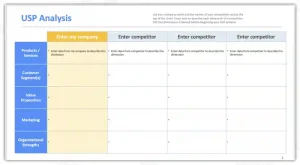 There is no compelling reason for a buyer to buy from you if there is no distinction between you and your competitors.Your value proposition sets you apart from your competitors in your industry and also convinces your audience to choose you over your competitors.
There is no compelling reason for a buyer to buy from you if there is no distinction between you and your competitors.Your value proposition sets you apart from your competitors in your industry and also convinces your audience to choose you over your competitors.
What makes you different from your competitors is what sets you apart from them. This sets a compelling argument for your audience to come to you and become your customers. Most of the time it's not easy to create a differentiation in the product, that is when you create your brand personality that sets you apart and creates a differentiation in mind for your products. Not just a few but there are thousands of examples where brands have done that successfully to create a buzz in the market.
You may have seen that there are countless paths you might take as you learn more about the world of marketing. It's tempting to construct a complex machine all at once in the hopes that you have covered all your bases.
However, this strategy makes it simple to accept too much.
Instead, pinpoint where the biggest impact will be. Where is the most significant marketing blind spot preventing your growth?
Focus your resources on the actions and strategies that will help you reach your performance objective, which you should set around one specific key area.
Once you've made more progress towards that one goal, raise your efforts or progress towards other goals.
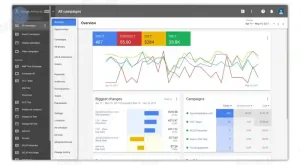 It's crucial to realize ROI sooner as you scale. Then you'll have the momentum and cash flow to focus on bigger initiatives, long-term plans, and sustainable growth models.
It's crucial to realize ROI sooner as you scale. Then you'll have the momentum and cash flow to focus on bigger initiatives, long-term plans, and sustainable growth models.
Strategies like SEO take time to build and might not fit with your primary initiatives because it doesn't produce quick results. For example, if you have an e-commerce store then SEO definitely is not a good idea. Go for paid ads for quick results and ROI. If you have enough resources to start with then it is good to go. However, don’t put all your eggs in one basket.
On an average, acquiring a new customer costs five times than closing the current existing one. So simply it means that you shouldn't stop marketing once they have made a purchase.
Determine your prospects for repeat purchasing, upselling, and cross -selling. Your current clients already know, like, and trust you since they have already made a transaction from you.
If they had a positive experience, they would be more likely to work with you again if they find a need.
You should always keep your customers delighted with your product, services, and customer support so that if their need arises for the next time, they always prefer you over your competitors.
One of the most crucial things you can build for your small business is a professionally designed website. This is exactly the place where you showcase your products/services, your offering, your Value proposition, and above your core values and purpose of your organization.
It is a channel you always own, and in addition, it has the power to generate organic traffic in addition to being a place to send traffic from advertising and marketing initiatives.
Your website is more than just a static brochure. You can convert your website
into a 24/7 salesperson by understanding how to turn your traffic into marketing-qualified leads that can close into sales.
 Blogging is a great way to generate online traffic to your website or landing page. But before writing your blog, you need to understand who is your target audience and their search intent. That will help you to choose the right keywords and how to address their pain points through your product./services.
Blogging is a great way to generate online traffic to your website or landing page. But before writing your blog, you need to understand who is your target audience and their search intent. That will help you to choose the right keywords and how to address their pain points through your product./services.
You can easily create a website on a website builder like WordPress or WIx and get started.
Even if you post one blog a week, doing so will increase the visibility of your website online and inform potential consumers about why they should buy from you.
Once you have started writing, you can add a call-to-action (CTA) to each post to encourage readers to subscribe to your blog and get emails.
This is a great approach to start generating leads and offering potential clients a means to receive information if they aren't ready to buy anything from you just yet.
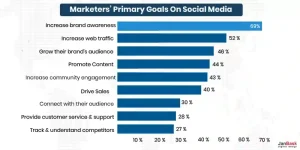 Social media is a tremendous tool for businesses because billions of potential clients use different platforms every day. You can use social media marketing to interact with potential customers, increase brand recognition, and advertise your products/services.
Social media is a tremendous tool for businesses because billions of potential clients use different platforms every day. You can use social media marketing to interact with potential customers, increase brand recognition, and advertise your products/services.
Why wouldn't you want to be recognized where your prospective consumers spend their time on social media?
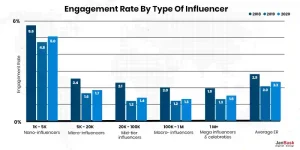 Facebook, Instagram, and YouTube are the most popular social media networks. However, if your small business is still relatively unknown on social platforms, think about working with prominent influencers in your industry.
Facebook, Instagram, and YouTube are the most popular social media networks. However, if your small business is still relatively unknown on social platforms, think about working with prominent influencers in your industry.
The most popular marketing trend right now is influencer marketing. An ensured strategy to bring your company in the eyes of your audience is to work with influencers.
Influencers are able to effectively tell your company's narrative and sell your brand to the right audience since they not only understand the niche but also have a talent for storytelling.
To strengthen your small business marketing plan, think about reaching out to influencers in your niche.
 Marketers are aware that a successful small business marketing plan should involve more than written content. In fact, 44% of social media marketers focused on producing video content for TikTok in 2022.
Marketers are aware that a successful small business marketing plan should involve more than written content. In fact, 44% of social media marketers focused on producing video content for TikTok in 2022.
Since platforms like Facebook, YouTube, Instagram, TikTok, and TikTok make it easy to interact with and engage with your audience. Incorporating short-form video content into your marketing strategy plan is a great idea to increase visibility, traffic, and engagement for your brand.
Short-form video content is simple to share, which makes it possible to reach your right audience.
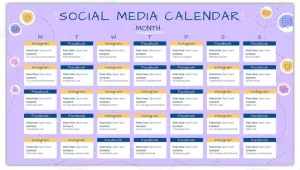 Posting something on social media in the hopes that it goes viral is not something that you should think of. To get your content to reach out to maximum people you must focus on creating purposeful content creation and posting.
Posting something on social media in the hopes that it goes viral is not something that you should think of. To get your content to reach out to maximum people you must focus on creating purposeful content creation and posting.
Create a social media content plan and adhere to a regular posting schedule once you've identified the social media platform that benefits your company the most.
However, avoid posting merely for the sake of posting. Most social media marketers suggest that it's better to post at a lower frequency with high-quality content rather than posting every day without having any strategy.
You might end up posting stuff which is less relevant or is not in sync with your brand.
Always prefer giving attention to details when creating intriguing content and scheduling it for appropriate times to stand out from the competition.
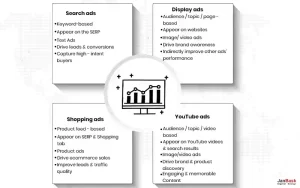 Organic traffic takes a while somewhere between 4 to 6 months to bring your page to the SERP first page given the condition that you have done SEO with proper research and planning. Running ads on your platform depends on how eager you're to expect a return.
Organic traffic takes a while somewhere between 4 to 6 months to bring your page to the SERP first page given the condition that you have done SEO with proper research and planning. Running ads on your platform depends on how eager you're to expect a return.
Pay-to-play strategies that target customers with high intent are excellent for achieving quick results that help to move to other goals and objectives.
80% of brands utilize some kind of paid promotion. If you are aware that your target market is looking for your product or service online, Google Ads are your bet. If not, you might think about using social media ads.
The buying intent of users on social media is lower, but you can still get their attention with properly targeted ads to convert them into your buyers.
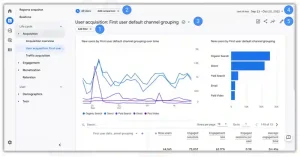 We have discussed enough about the visibility and traffic but haven't fully discussed how these factors would help to generate revenue. One way would be to Implement a conversion tool to start generating leads or clients from your website.
We have discussed enough about the visibility and traffic but haven't fully discussed how these factors would help to generate revenue. One way would be to Implement a conversion tool to start generating leads or clients from your website.
There are many free marketing tools available in the market that makes it easy to capture, store, and nurture leads, including:
Create content that your target audience wants, capture leads through one of the several tools available, and then nurture them through automated marketing emails.
Maybe you can add special offers and promotions in an effort to turn them into paying clients. A lot of free and paid tools are available in the market that are used to improve your website's performance and generate leads.
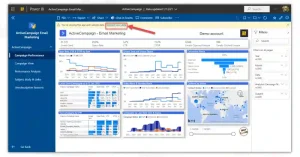 The mere fact that you turned website visitors into leads doesn't indicate that those leads are ready to buy from you. They still may be in an awareness or consideration phase where they might be considering other brands as well before making the purchase. It's important to stay top of mind so that when they decide to make a purchase they consider you, given your brand solves their pain points.
The mere fact that you turned website visitors into leads doesn't indicate that those leads are ready to buy from you. They still may be in an awareness or consideration phase where they might be considering other brands as well before making the purchase. It's important to stay top of mind so that when they decide to make a purchase they consider you, given your brand solves their pain points.
Email marketing is the most efficient form of advertising and should be a key component of your marketing strategy. In actuality, 73% of millennials prefer email to other forms of professional communication.
This strategy is simple, free, and scalable to interact with both potential and existing customers.
Once you've set up an email marketing platform try sending newsletters (with your sleek new blog entries) and other promotional resources to your database.
Small business owners don't typically have a lot of spare time to dedicate to digital marketing, so use marketing automation to make your life even simpler.
Email marketing performs best when it is personalized and targeted. A customer database or customer relationship management (CRM) system is the first step in this process.
Your CRM maintains data about your leads, prospects, and customers, In order to better manage customer interactions and identify sales opportunities.
As mentioned earlier, delighted customers can significantly affect your company, particularly in terms of repeat business and word-of-mouth.
Your consumers will be more likely to leave reviews, give testimonials, and refer you to friends if they get a wonderful experience with your products/services.
It makes sense to measure consumer satisfaction and encourage word-of-mouth advertising to track your customer's experience.
Introduce your company to the local community and make connections with other nearby business owners. Consider partnerships with other local businesses to provide clients discounts, offers, or coupons.
Start a live stream during a marketing event with local business owners to increase your visibility in the market.
Building relationships with other small businesses is beneficial for both word-of-mouth marketing and collaboration. Collaborate with other local businesses and advertise your collaboration on social media to boost your traffic and create a sustainable brand in the market.
The success of a company is largely dependent on its marketing strategy plan. A marketing plan contains the activities you'll take to fulfill your marketing goals, whereas your marketing strategy consists of the things you've to imbibe in your organization to accomplish its goals. It's crucial to think about both a marketing plan and a marketing strategy if you want to grow your business.
Now let’s define the difference between marketing plan and marketing strategy difference and share the benefits of having both:
A marketing plan outlines the detailed measures and steps that you take to carry out a marketing campaign, the business overarching strategy, or other marketing objectives. Marketing plans concentrate on individual tactics and strategy-implementation duties that assists a business in achieving its objectives. Creating your marketing strategy is the first stage in creating a marketing plan. Afterward, you put together a thorough plan that outlines the what, when, how, and where of implementation as well as how you later evaluate the performance of your marketing strategy.
A significant portion of any marketing plan is the measurement of its effectiveness. Your set achievement indices, or key performance indicators (KPIs), indicate how close you are to achieving your objective. Knowing your KPIs can help you create a more effective marketing plan that fits with the entire strategy and decide your success. KPIs may include metrics like organic website traffic, sales revenue, landing page conversion rates, and cost per lead or cost per click.
Here are the things that you can consider in your marketing plan:
Branding: Establish the brand voice, colors, typefaces, and other elements that will be used to represent the firm or a particular campaign. The brochures, website, social media platforms, emails, blog posts, retail signage, and any paper advertisements should all include these branding components.
Schedule and budget: It's crucial to include information regarding the campaign's budget and schedule when building a marketing plan for a specific campaign. This guarantees that you stay on schedule and on budget throughout the campaign, regardless of whether the goal is to raise brand awareness or sell more of a particular product.
Responsibilities: A marketing strategy frequently requires assistance from a number of individuals who handle key responsibilities. Therefore, the implementation of the campaign or strategy should be broken down into specific roles in the marketing plan. Consider who is producing the content, creating the graphics, distributing it across the various channels, and tracking KPIs.
Content Strategy: A content strategy may include details on how often and when to distribute content to your target market, as well as the channels you'll use to reach them and any incentives you'll offer for engagement.
Channels: The channels are the platforms that you utilize to reach out to your target audience. You must plan your marketing strategy based on the channels, as each has a different communication style, and you must design your content accordingly. Email, podcasts, blog entries, and social media sites are few examples of the channels used to promote your brand.
A marketing strategy connects your business strategy and serves as the cornerstone of what the organization needs to do in order to connect with its target market and accomplish its goals. When creating your marketing strategy, remember these to include:
Marketing plans and marketing strategies are distinct from one another, despite the fact that marketing professionals sometimes use these two terms interchangeably. Knowing the distinctions between the two is crucial given that both are essential for your company's growth. Most importantly, you should first develop a marketing strategy. Then, your marketing plan describes how you carry out everything your marketing strategy has set forth.
Here are some other differences between a marketing strategy and plan:
Definition: The marketing strategy serves as the justification for your marketing efforts. This can be the case because the company has to make more money to fund its growth or because it needs more brand recognition to attract loyal customers. A marketing plan, on the other hand, outlines how you carry out your approach.
Purpose: The purpose of the marketing plan is to establish the specific steps that you take to accomplish your marketing goals, while a marketing strategy is used to align your marketing goals with the overall goals of the firm.
Focus: Another area of differentiation between marketing strategy and marketing plan is in what each focuses on. Your marketing strategy includes goals, target market, communication channels,campaign objectives, and competitive analysis. In contrast, your marketing plan should focus on the implementation process and more tactical steps to attain the objectives you've mentioned in the strategy.
Clear, defined, and quantifiable goals enable you to assess new opportunities and decide swiftly whether they are the best course of action for your business. You can easily explore whether the opportunity matches your needs, aligns with the marketing strategy and fits to your marketing plan as well.
1. What are the main components of a good marketing strategy?
The components of an effective marketing strategy more or less remains the same, even though the specific one you choose relies on your company's niche, industry, and marketing KPIs. These include precise goals and objectives, a well-defined target market, a Unique value proposition, a strong competitive analysis plan, an excellent marketing mix, a clear budget and metrics, and a well-organized implementation strategy.
2. Why is a good marketing strategy so important for your business?
A well-thought-out marketing strategy is crucial for your company for the following reasons: it gives all marketing initiatives a clear direction, maximizes return on investment, supports brand development, enables measurement and optimization of marketing efforts, and keeps you competitive with your competitors.
3. What are best practices for marketing strategies?
4. What are the 4 types of marketing strategies?
The four P's of marketing strategy is Product, pricing, place, and promotion Each component of this marketing mix is crucial for boosting sales and developing an effective marketing strategy for your company.
Everything always comes full circle in the world of marketing. It's not just about email, social media, content, or even your website; it's about how you combine all of those channels to improve your online visibility, enhance interaction with the original material, and ultimately persuade people to buy your products. Maintain these essential strategies and then develop a more robust plan in response to your changing needs.
Last but not least, constantly keep in mind your final objective and how you can adjust these based on results. Invest in every plan and give it time to work to reap benefits.
Interested in our Professional Marketing Services ?

C
Really like the Blog. Very Informative Piece. Every step you mentioned is very important to draft your marketing strategy. I have been planning & preparing business strategies for a decade now. What you just shared is a baseline for creating a successful marketing action plan.
J
Thank you so much for your comment, we appreciate your time. For any query or view, please write us at info@janbaskdigitaldesign.com ?
K
I feel without your true competitors & customers, you can’t really identify the marketing goals & actions. These two are very important if you wish to create very robust marketing initiatives.
J
Thank you so much for your comment, we appreciate your time. For any query or view, please write us at info@janbaskdigitaldesign.com ?
D
This strategy you shared is very equally usable for any kind or size of business. As a small business or even as a large business, there are the same ways to build a pipeline & I think you guys covered every aspect. Great Work & research!!!
J
Thank you so much for your comment, we appreciate your time. For any query or view, please write us at info@janbaskdigitaldesign.com ?
H
I have seen fallen businesses, because they jumped directly onto the marketing practices. They thought putting together social media profiles, writing online content is enough to market themself. But they lacked proper planning & strategizing, and which is why they ended up sulking huge marketing dollars.
J
Thank you so much for your comment, we appreciate your time. For any query or view, please write us at info@janbaskdigitaldesign.com ?
D
Measuring metrics is a very important factor. If you keep doing, implementing whatever initiative you see without tracking down the results, I feel you could be shelling a lot of wasteful money or time & still won’t get effective results.
J
Thank you so much for your comment, we appreciate your time. For any query or view, please write us at info@janbaskdigitaldesign.com ?
C
I exactly followed these steps to create my marketing pipeline & did help me & my team. It brought us great clarity in understanding our tasks, and we were actually able to see some impactful outcomes. I believe writing down really helps in achieving what you want.
J
Thank you so much for your comment, we appreciate your time. For any query or view, please write us at info@janbaskdigitaldesign.com ?
C
Hey, I have a business related to healthcare, I am wondering if you could help our small team set up some realistic marketing strategy? Could you help us with some demos or samples or maybe of your past work?
J
Thank you so much for your comment, we appreciate your time. For any query or view, please write us at info@janbaskdigitaldesign.com ?
K
Our team loves making a calendar for every social media activity. We are using one for a content marketing tool & for SEO, we have a goal sheet. It has really streamlined our work & helped us bring clarity in what to do next.
J
Thank you so much for your comment, we appreciate your time. For any query or view, please write us at info@janbaskdigitaldesign.com ?
G
It is so true, there is no one size fit all kind of marketing strategy. I believe every business has its own pace. It is just a combination of right calculation, efforts & resources you need to get results.
J
Thank you so much for your comment, we appreciate your time. For any query or view, please write us at info@janbaskdigitaldesign.com ?
D
Really great post. Appreciate the steps you have mentioned. Really looking forward to creating one for my business too like this.
J
Thank you so much for your comment, we appreciate your time. For any query or view, please write us at info@janbaskdigitaldesign.com ?
K
Hi! The article is really helpful as I followed all your 15 steps to create a strong business marketing strategy under an affordable budget. Thanks for the detailed process!
B
Thanks for the information! By following your steps of creating strong business marketing strategies are really helpful. Once again, Thanks a lot team!
E
Does your team help us in business marketing strategy as I am very new in this industry? If yes, then what’s the process of hiring a marketing team professionals.
J
Does establishing and measuring KPIs and metrics really help in creating a strong marketing strategy under any budget? If so, then can you guide me in this?
O
What’s the cost of hiring professionals from your company? And what’s the process to follow?
K
I appreciate the emphasis on data-driven decision-making in marketing. It’s amazing how much we can achieve by analyzing customer behavior and adjusting our strategies accordingly.
A
This blog never disappoints when it comes to highlighting innovative marketing approaches.
P
Thank you for making this information accessible to everyone. It’s helpful for both beginners and experienced marketers.”
P
Marketing is constantly evolving, and staying updated with the latest strategies is a must. This blog post offers a comprehensive overview of various techniques.